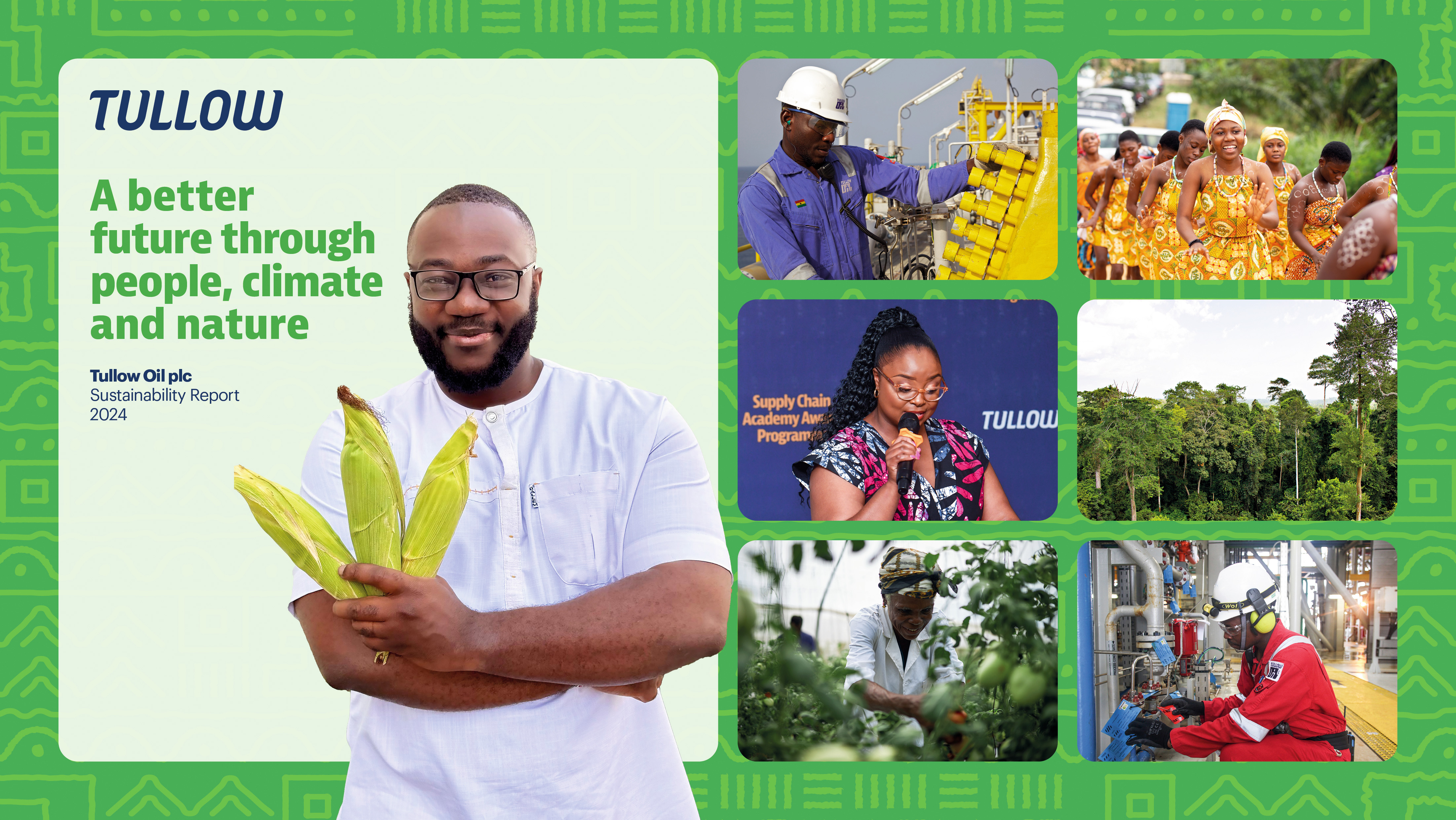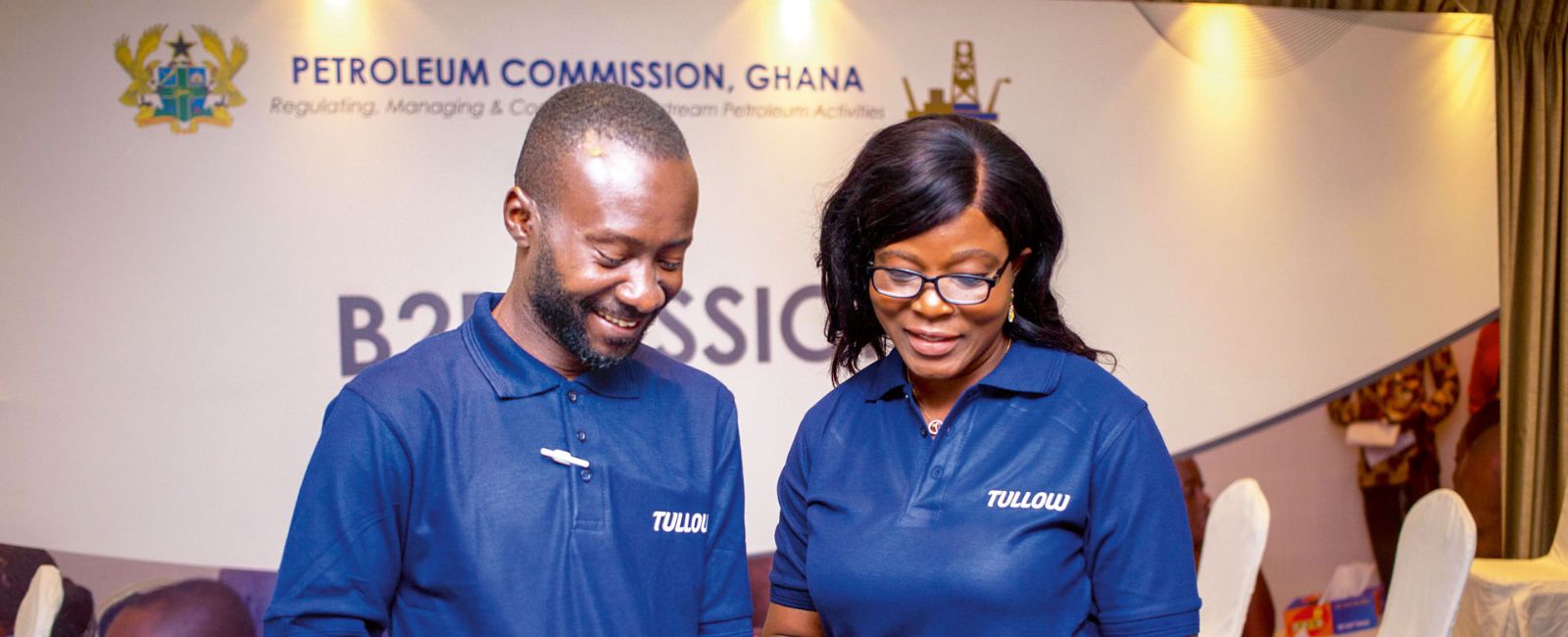Meeting our commitment to Net Zero by 2030 on a net equity basis through decarbonisation of our assets and investing in a nature-based carbon offset initiative for hard to abate residual emissions.
Progressing our Net Zero by 2030 strategy
We support the goals of the 2015 Paris Agreement, namely, to hold the increase in the global average temperature to well below 2°C and pursue efforts to limit the temperature increase to 1.5°C above pre-industrial levels. We have committed to achieving Net Zero by 2030 on our Scope 1 and 2 greenhouse gas (GHG) emissions on a net equity basis through a combination of decarbonising our operated assets in Ghana and identifying high-quality, nature-based solutions to offset our hard to abate emissions. This plan is approved by our Board of Directors and Senior Leadership Team, and led by a Net Zero Working Group within Tullow. To deliver on our commitment, we are prioritising the elimination of routine flaring at our Jubilee and TEN fields, which we expect will drive down GHG emissions by at least 40% by 2025, on a net equity basis, from a 2020 baseline. Further, we are investing in a verified, nature-based carbon offset initiative in Ghana with the Ghana Forestry Commission, which we expect to offset 100% of our hard to abate GHG emissions.
Learn more about our climate-related financial impacts, reported in line with the Task Force on Climate-related Financial Disclosures (TCFD) recommendations in our 2024 Annual Report and Accounts.
Progressing our Net Zero ambition will help to reduce negative impacts of climate change and help avoid deterioration in the quality of life for host country communities and wider stakeholders. The primary method of decarbonising our assets is the elimination of routine flaring.
In 2024, we achieved advanced final process improvements on Jubilee and TEN to increase gas handling capacity to eliminate routine flaring by 2025. We also recorded a 15% reduction in production emissions intensity, 8% reduction in net equity emissions, and 20% reduction in operated methane emissions.
We invest in nature-based solutions for carbon offsets to address residual, hard-to-abate emissions predominantly associated with power generation on the FPSOs.
In 2024, we finalised the necessary contractual requirements with the Ghana Forestry Commission to begin full scale implementation of a nature-based programme to offset a minimum of 600,000, and potentially up to 1 million, tonnes of carbon emissions per year. Environmental and social due diligence has been completed to inform ongoing activities.
Our Sustainability Report 2024
This Sustainability Report complements our 2024 Annual Report and provides further details of our environmental and social performance over the past year.

